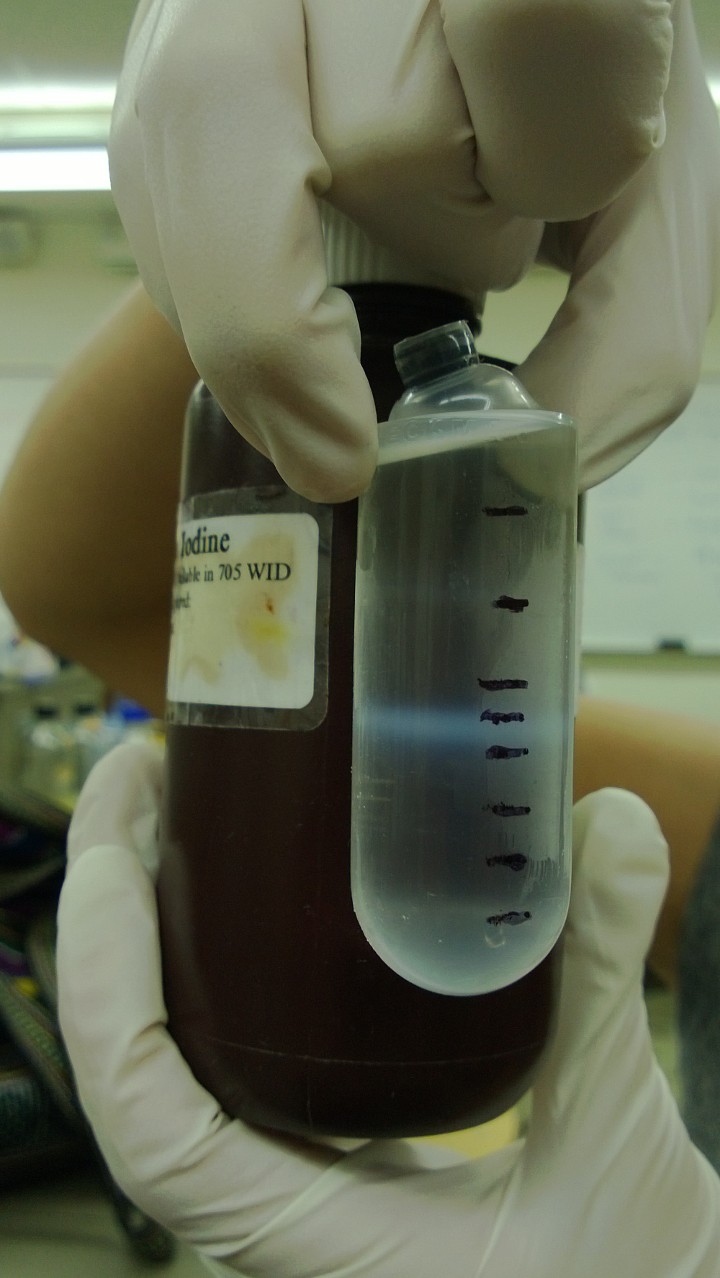Team:BYU Provo/Notebook/Phage Purification/Summerexp/Period1/Exp/7.17 CsCl Gradient
From 2013.igem.org
(Difference between revisions)
(Created page with "{{TeamBYUProvo}} <br> {| width="100%" | colspan="3" | <font color="#333399" size="5" font face="Calibri"> '''Phage Purification July - August Notebook: Experiments'''</font> <...") |
|||
| Line 10: | Line 10: | ||
|- valign="top" | |- valign="top" | ||
| - | | style="width: | + | | style="width: 20%; background-color: transparent;"| |
<font color="#333399" size="3" font face="Calibri"> | <font color="#333399" size="3" font face="Calibri"> | ||
| - | : | + | <font size = "4"> |
| + | |||
| + | : <u> '''Phage Purification''' </u> </font> | ||
: [[Team:BYU Provo/Notebook/Phage_Purification/Winterexp|March-April]] | : [[Team:BYU Provo/Notebook/Phage_Purification/Winterexp|March-April]] | ||
| Line 26: | Line 28: | ||
</font> | </font> | ||
| - | | style="width: | + | | style="width: 80%; background-color: transparent;"| |
<font face="Calibri" size="3"> | <font face="Calibri" size="3"> | ||
Latest revision as of 00:34, 28 September 2013
| Phage Purification July - August Notebook: Experiments
| ||
|
|
7.17 CsCl Gradient
I) Purpose
II) Expected Outcome
III) Reagants Used
V) Results
| |
 "
"
